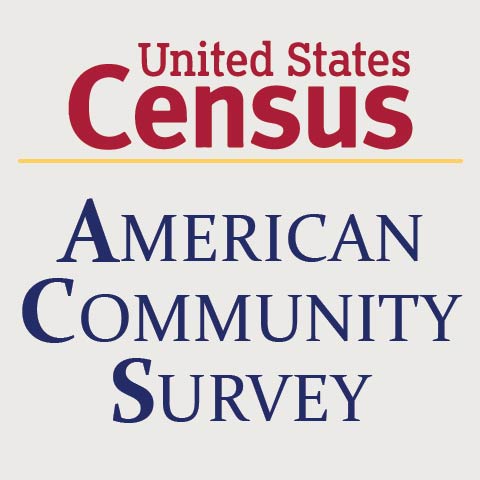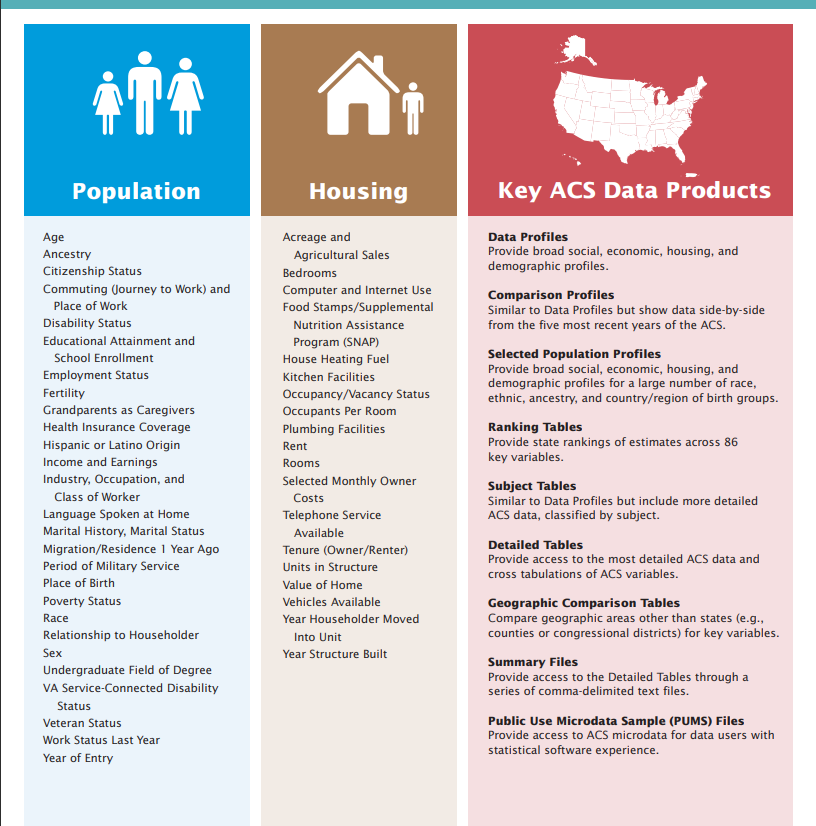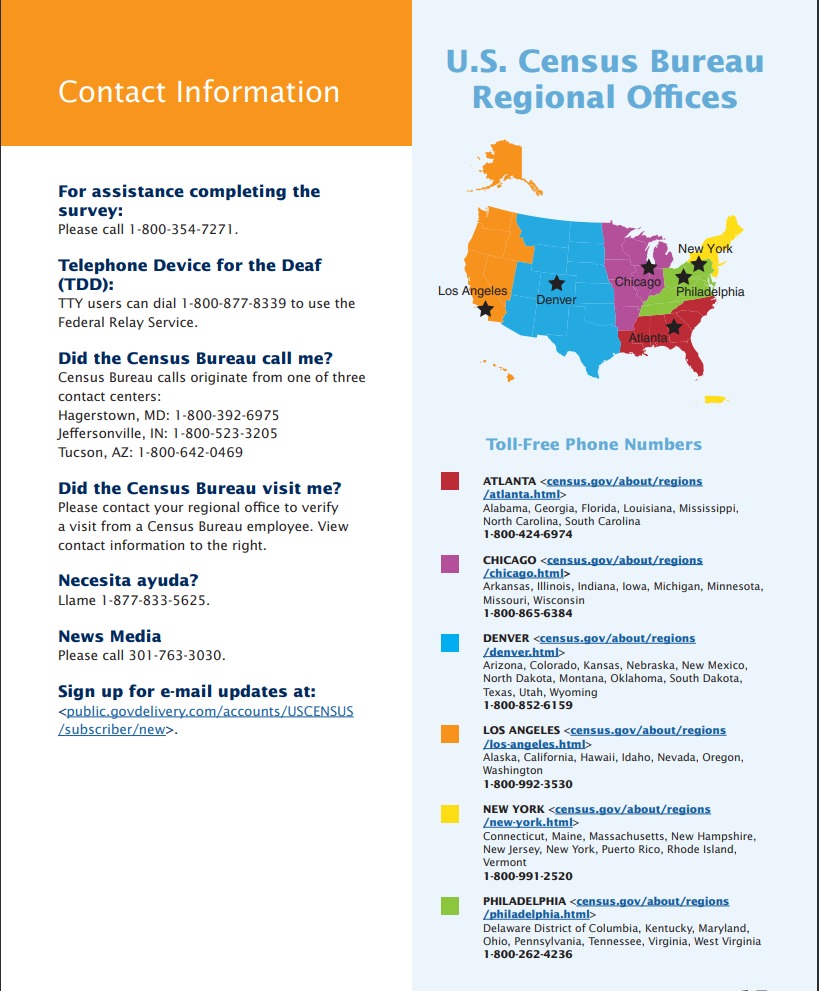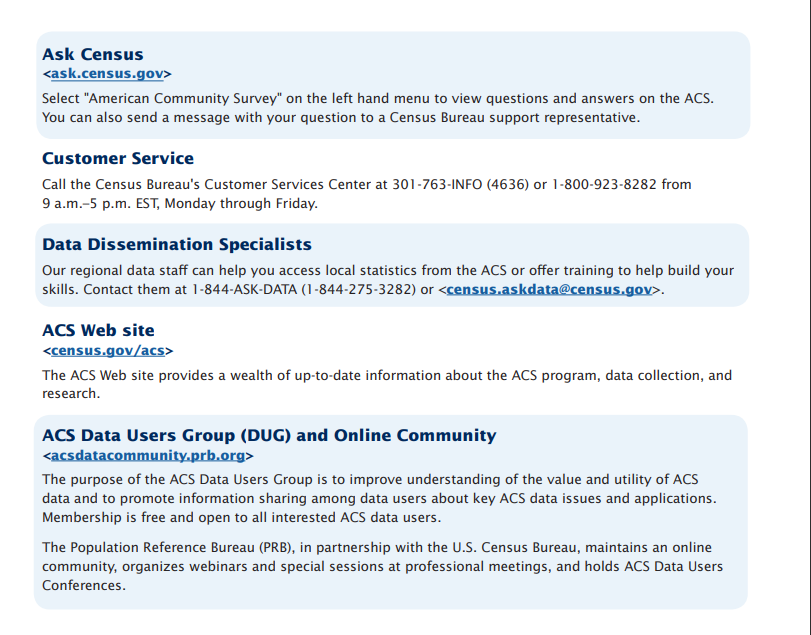
Most of us are familiar with the U.S. Census, which is conducted every 10 years by the U.S. Census Bureau. The data collected calculates the number of people living in the United States. It is used to assign the number of seats each state has in the U.S. House of Representatives and to determine how much federal funding communities receive. The funding goes to public services like hospitals, fire departments, and schools.
The American Community Survey is another form sent to United States citizens by the U.S. Census Bureau. It is sent annually to 3.5 million addresses across the country. The addresses are selected at random.
The survey calculates detailed population and housing information that helps local officials, community leaders and businesses understand the changes taking place in their communities.
The data collected is used to determine the distribution of trillions of dollars in federal funds each year. By responding you are helping your community plan hospitals and schools, support school lunch programs, build infrastructure and more.
You can respond to the survey online, by mail, telephone or by in-person interviews.
Once you have completed the survey and sent it in to the Census Bureau it will be reviewed for completeness. Questionnaires needing clarification are referred to the Census Bureau’s telephone call centers for telephone follow-up calls, they may call you to clarify your answers.
Your response to the American Community Survey is required by law (Title 13, U.S. Code, Sections 141, 193, and 221). Title 13, as changed by Title 18, imposes a penalty for not responding.
The questions categories include, social, ancestry, demographics, housing, economic, education, employment, veteran information, internet access, transportation and others.

Their privacy statement says, “The Census Bureau is legally bound to strict confidentiality requirements and we never reveal your identity to anybody else. When you respond to the American Community Survey, your individual records are not shared with anyone, including federal agencies and law enforcement entities. By law, the Census Bureau cannot share respondents’ answers with anyone, — not the IRS, not the FBI, not the CIA, and not with any other government agency.
All Census Bureau employees take an oath of nondisclosure and are sworn for life to protect all information that could identify individuals. Any employee who violates the provisions of the oath is subject to a fine up to $250,000 or a prison sentence up to 5 years, or both.
To protect your privacy, the American Community Survey NEVER asks for:
your Social Security number
your mother’s maiden name
your personal information through email
money or donations
credit card or bank account information
If a field representative comes to your home to help you complete the American Community Survey, he or she will ALWAYS have official Census ID. Learn more about how to identify a field representative.
We never reveal your identity to anybody else. When we process the information collected on the American Community Survey (ACS), individuals’ names and other personal identifiers are deleted from the files used to tabulate these data. We do not maintain a national database with the names, addresses, and personal information collected by the ACS.
Additionally, we employ statistical methodologies to ensure that the statistics we release do not identify individuals or businesses. These methods include extensive review and analysis of all our data products, as well as disclosure avoidance methodologies (such as data suppression and modification) to screen out data that might identify a specific individual or business.”
It is wise to be suspicious of anything you receive in the mail or by someone reaching out to you in person, by phone, email or text. Scammers can pretend to be from the U.S. Census Bureau to trick you into providing personal information that can lead to identity theft and other crimes. The Census Bureau offers advice on making sure the survey you receive is legitimate.
“Do you want to verify that mail, phone calls or in-person interviews are legitimate?
If your household has been contacted to complete the American Community Survey and you would like to verify that this survey is legitimate, you can call toll-free 1-800-354-7271.
If someone has called you about the American Community Survey and you would like to verify that the phone call is legitimate, you can call one of our telephone centers directly:
Jeffersonville, IN: 1-800-523-3205
Tucson, AZ: 1-800-642-0469
If someone has visited your address, and you would like to verify that this visit is legitimate, you can call your Census Regional Office, and you can also confirm that he or she is a Census Bureau employee by entering his or her name into the Census Bureau Staff Search,
Our field staff will always show a valid Census Bureau ID and a copy of the letter we sent you”

If you receive the American Community Survey, take the time to answer the questions and send it in, by doing so you are helping your local community by making sure limited resources can be allocated efficiently and effectively.
If you have questions about the survey, you can download the American Community Survey
Information Guide. https://www.census.gov/programs-surveys/acs/library/information-guide.html
